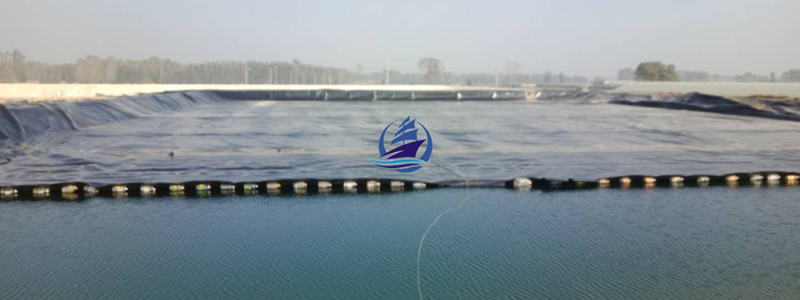
- Home
- >
- News
- >
- What Is Hdpe Geomembrane
- >
What Is Hdpe Geomembrane
2024-09-13 15:00
What Is HDPE Geomembrane?
High-Density Polyethylene (HDPE) geomembranes are crucial in modern engineering, environmental protection, and construction projects. These robust, flexible sheets are designed to act as barriers against liquid and gas migration, offering protection and stability in various applications. In this article, we’ll explore the different aspects of HDPE geomembranes, including their benefits, applications, and the leading geomembrane liner companies that supply them. We’ll also provide insights into the buying process, specifically addressing common questions about purchasing HDPE geomembranes.

Understanding HDPE Geomembranes
HDPE geomembranes are synthetic liners made from high-density polyethylene, a type of plastic renowned for its durability and resistance to environmental stressors. These geomembranes are widely used in various applications due to their excellent impermeability and long service life.
The primary function of HDPE geomembranes is to provide a barrier that prevents the movement of fluids or gases through soil or other materials. They are commonly employed in landfills, mining operations, and wastewater treatment facilities. The high-density polyethylene material offers superior chemical resistance and can withstand extreme temperatures, making it ideal for these demanding environments.
Benefits of Using HDPE Geomembranes
The advantages of HDPE geomembranes extend beyond their basic function of fluid containment. Here are some key benefits:
Durability: HDPE geomembranes are designed to last for decades. Their resistance to UV radiation, chemicals, and physical damage ensures long-term performance with minimal maintenance.
Flexibility: Despite their strength, HDPE geomembranes are flexible and can conform to various shapes and surfaces, which simplifies installation and reduces the risk of leaks.
Cost-Effectiveness: Compared to other types of liners, HDPE geomembranes offer a cost-effective solution due to their longevity and minimal maintenance requirements.
Environmental Protection: By effectively containing hazardous materials and preventing contamination, HDPE geomembranes play a crucial role in protecting the environment and ensuring compliance with regulations.
Ease of Installation: The installation of HDPE geomembranes is relatively straightforward. The material can be welded to create a seamless barrier, reducing the likelihood of failure.
Key Applications of HDPE Geomembranes
HDPE geomembranes are versatile and used in a variety of applications:
Landfills: In landfill construction, HDPE geomembranes act as a barrier to prevent leachate and gases from contaminating surrounding soil and groundwater.
Mining: Mining operations use HDPE geomembranes in heap leach pads and tailings storage facilities to control the movement of chemicals and prevent environmental contamination.
Wastewater Treatment: These geomembranes are used in wastewater treatment ponds and lagoons to prevent leaks and control the movement of treated and untreated wastewater.
Agricultural Ponds: HDPE geomembranes are used to line agricultural ponds and irrigation ditches to retain water and reduce evaporation.
Construction Sites: They are employed in construction projects to manage stormwater and control soil erosion.
Choosing the Right Geomembrane Liner Companies
Selecting the right geomembrane liner company is critical for ensuring the quality and performance of HDPE geomembranes. Here are some factors to consider:
Reputation: Look for companies with a solid reputation in the industry. Established geomembrane liner companies are more likely to provide high-quality products and reliable customer service.
Experience: Companies with extensive experience in manufacturing and installing HDPE geomembranes will have a deeper understanding of industry standards and best practices.
Certification: Ensure that the company’s products meet relevant industry certifications and standards. This can provide assurance of their quality and performance.
Customer Support: Good customer support is essential for addressing any issues that may arise during the project. Choose a company that offers comprehensive support and guidance.
Cost: While cost should not be the only factor, it is important to compare prices among different suppliers to ensure you are getting value for your investment.
Common Questions About Purchasing HDPE Geomembranes
What factors should I consider when buying HDPE geomembranes?
When purchasing HDPE geomembranes, consider factors such as the thickness of the material, the specific application, environmental conditions, and the reputation of the supplier.How can I ensure the quality of HDPE geomembranes?
To ensure quality, choose geomembrane liner companies that provide certifications and test results for their products. Verify that the geomembranes meet industry standards for performance and durability.What is the typical lifespan of HDPE geomembranes?
HDPE geomembranes typically have a lifespan of 20 to 30 years, depending on the environmental conditions and maintenance. Proper installation and care can extend their service life.Can HDPE geomembranes be recycled?
Yes, HDPE geomembranes can be recycled. Many suppliers offer recycling programs or services for used geomembranes, which helps reduce environmental impact.What are the common installation methods for HDPE geomembranes?
Common installation methods include welding the geomembranes to create a seamless barrier, using adhesives, or mechanically attaching the material. The choice of method depends on the project requirements and site conditions.
Conclusion
By understanding the benefits and applications of HDPE geomembranes and selecting reputable geomembrane liner companies, you can ensure the successful implementation of these critical barriers
Choose Yingfan's HDPE geomembrane for superior durability and reliability in your projects. Trust in our quality products to meet all your construction and environmental protection needs.
Related News
Read More >-
![How to make a geomembrane?]()
How to make a geomembrane?
Geomembranes are synthetic polymer materials primarily used for waterproofing, impermeability, and other purposes. They are widely applied in landfills, mining, water management, agriculture, and many other industries. Due to their excellent water-resistant properties and resistance to chemical corrosion, geomembranes have become an indispensable material in modern engineering.
-
![Is Geomembrane Permeable?]()
Is Geomembrane Permeable?
The very essence of a geomembrane lies in its impermeability. It's a crucial characteristic that defines its function and makes it indispensable across various industries.
-
![What are the examples of geomembranes?]()
What are the examples of geomembranes?
Geomembranes are impermeable barriers used in a wide variety of applications to contain liquids and gases. They're essentially large, flexible sheets made from various synthetic materials, chosen for their durability and resistance to different substances.
-
![Where are geomembranes used?]()
Where are geomembranes used?
Geomembranes are impermeable liners crucial for various applications like landfills, mining, and water management. These durable barriers prevent leaks and contamination, safeguarding the environment and resources. Available in various materials and thicknesses, geomembranes offer customized solutions for diverse project needs, ensuring long-term performance and sustainability.
-
![What is the difference between geomembrane and HDPE?]()
What is the difference between geomembrane and HDPE?
Geomembranes are synthetic membranes used as barriers to control fluid or gas migration in various applications, including environmental protection, waste management, and construction. They can be made from various materials, including high-density polyethylene (HDPE) and polyvinyl chloride (PVC).
-
![What are the three types of geomembrane?]()
What are the three types of geomembrane?
Geomembranes are essential components in various construction and environmental applications, primarily used for containment and fluid barrier purposes.
-
![What is the difference between geomembrane and geotextile?]()
What is the difference between geomembrane and geotextile?
In modern construction and civil engineering, geomembrane and geotextile are two commonly used synthetic materials. While they share some similarities, their functions and applications are quite different.
-
![What is a geomembrane used for?]()
What is a geomembrane used for?
Geomembranes are essential components in various civil engineering, environmental, and industrial projects. They act as impermeable barriers, preventing liquids and gases from passing through. Think of them as giant, flexible liners that protect the environment and contain various substances.









